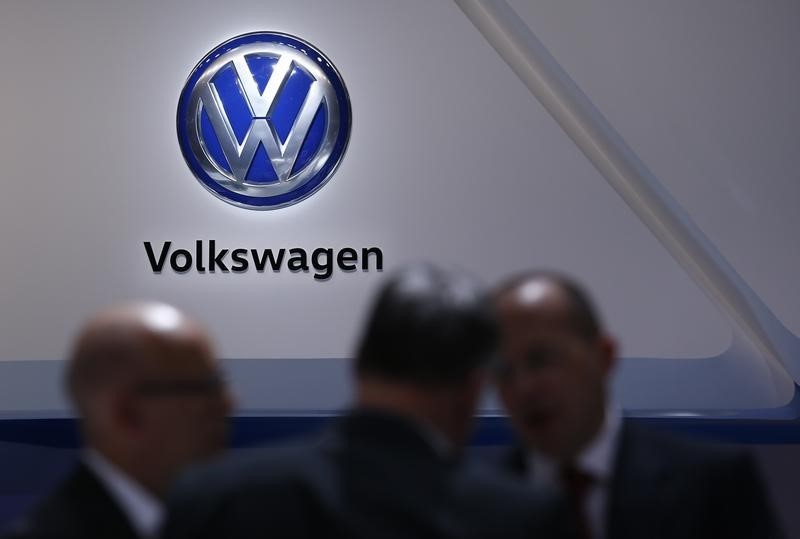EUR/USD likely to find a peak near 1.25: UBS
Investing.com -- Fitch Ratings has revised the outlook for Volkswagen AG (OTC:VWAGY) (VW) from stable to negative, while maintaining its long-term issuer default rating (IDR) at 'A-'. The change in outlook is due to worsening market conditions in the US and rising cost pressures resulting from tariffs imposed on the automotive sector.
The agency predicts that VW's EBIT margins will drop by 100bp-150bp to approximately 5% and free cash flow (FCF) margins will remain negative over the next 12 months, falling below their rating sensitivities. Despite anticipating a medium-term recovery as restructuring charges lessen and new model launches increase, Fitch sees limited room for rating improvement due to execution risk and additional economic stress from revised predictions for much of Europe.
The affirmation of the IDR reflects VW's robust capital structure and solid business profile, which includes good geographic diversification and a product range that covers almost all car and commercial-vehicle subsectors.
Fitch estimates that the 25% tariff aimed at EU cars destined for the US market will cause VW's EBIT margin to drop by 100bp-150bp in 2025, in addition to recent restructuring costs in Europe. These tariffs affect a third of VW's US sales and less than 4% of its total sales, primarily impacting its profitable Audi and Porsche brands.
Though the company can pass on the additional price increase to customers, this could result in a loss of market share in the US. The rating agency expects the operating margin to recover to 7% by 2026. However, prolonged trade discussions between political parties for resolution and tariff-induced inflation could dampen new car demand and pose further downside to operating margins.
Fitch forecasts that VW's FCF margin will remain negative for the second year in 2025, breaching the downgrade sensitivity of 2%, before recovering to close to that in 2026. This takes into account its squeezed operating margins, the restructuring cash expense, lower cash flow contributions from Chinese joint ventures and VW Financial Services. It does not incorporate additional capex needs stemming from localizing production capacity for the affected vehicle models.
The company's ratings are supported by its unparalleled product portfolio in the auto and heavy-truck segments. The ratings also reflect the company's broad diversification, leading market share, and unrivaled potential for cost savings and economies of scale. However, its complex structure has hindered the full reflection of these synergies in operating profit.
Fitch does not anticipate a major shift in the competitive landscape in China, as demand continues to fluctify on the back of macroeconomic trends and government subsidies. The tariffs could weigh on Porsche's 2025 US sales, but Fitch believes the luxury subsector is less price sensitive, and US competitors would take time to develop comparable models.
VW is the largest car manufacturer by deliveries in Europe and is among the top global manufacturers, like Toyota Motor (NYSE:TM) Corporation, Hyundai Motor (KS:005380) Company (OTC:HYMLF), General Motors Company (NYSE:GM) and the global alliance between Renault (EPA:RENA) SA (OTC:RNLSY), Nissan Motor Co., Ltd. (TYO:7201) and Mitsubishi Motors (OTC:MMTOF) Corporation.
Key assumptions include revenue growth at low-to-mid-single digits over 2025-2028, EBIT margin declining to around 5% in 2025 due to tariffs, before recovering to around 7% in 2026, and dividends to common shareholders and preferred shareholders at about 30% of net income.
This article was generated with the support of AI and reviewed by an editor. For more information see our T&C.
